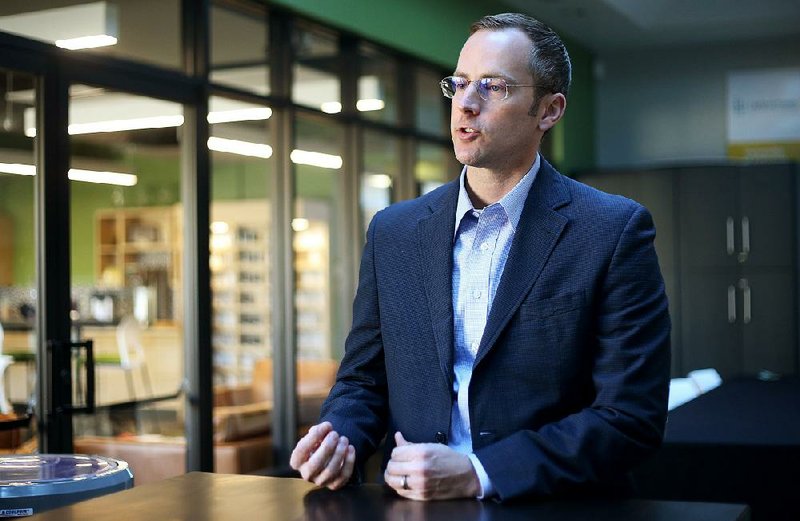Fayetteville-based medical device developers Lapovations secured its place as the winningest startup team in University of Arkansas history after clinching another product pitch competition contest victory in October.
The company's $5,000 win in the SEC Student Pitch Competition at Texas A&M University, means that over seven competition victories, Lapovations is sitting on more than $305,000 in cash and investment prizes, a new school record. With the addition of $100,000 in grants and other awards from the the Delta I-Fund and Health InnovatAR accelerator programs, the company is positioned to further develop its products -- new medical devices used in laparoscopic surgery.
Laparoscopic procedures, sometimes called band-aid, or keyhole surgery, are performed through a small incision and by definition are minimally invasive. In 2017 there were 3.5 million laparoscopic procedures performed in the U.S., which include operations like hernia repair and female sterilization, according to IData Research, a Canadian Health Care Market Research company.
Lapovations co-founder and Chief Executive Officer is Jared Greer graduated from the UA in May with a degree in biomedical engineering. He came to Lapovations with 15 years experience in medical sales and a bachelor of science in industrial engineering and an masters of business administration, also eared at the UA.
His co-founder Dr. Chris Taylor, with more than 4,000 minimally invasive surgeries to his credit, is the company's chief medical officer. The pair teamed up to build devices to provide solutions for issues faced by laparoscopic surgeons and decided to turn to the UA for support and advice.
Greer said the company estimates worldwide there are 15 million laparoscopic surgeries performed annually with the global market for gear used in the procedure growing more than 10 percent each year.
"I knew it would be a huge opportunity if we could only execute," Greer said in a recent interview.
As part of the UA New Venture Development course, Greer was teamed with Flavia Araujo, then a full-time MBA student and Michael Dunavant, an executive MBA Student at the time. The team proceeded to win pitch competitions and bank significant seed money for Lapovations.
The company's first device, called AbGrab, uses suction to lift the abdominal wall away from vital organs and tissues, drastically reducing the chances of unintentional injury to the patient during a laparoscopic surgery. Plans are to have the product approved and ready for sale next year.
The new device is considered a Class 1 Medical device, which have low or moderate risk to a patient or user and are overseen by the U.S. Food and Drug Administration. According to BMP Medical, a medical device manufacturer, 47 percent of medical devices fall into the Class 1 category and 95 percent of these are exempt from stringent regulatory processes including preclinical or clinical trials.
Greer said the funds garnered through the competition are allowing the company to push further into research and development of products and hire its first employees. The money also comes with a huge advantage, the startup doesn't have to trade equity for funding and it helps avoid potential outside interference by investors.
"It allows us to steer our own course," Greer said.
The medical instrument and supply industry in the U.S., which researches, develops and produces non-electronic medical, surgical, dental and veterinary instruments and apparatus, is projected to see revenue of $92.3 billion in 2018, according to a report from market research group IBIS World. Surgical instruments make up 47.6 percent of that market.
The report indicates while revenue in the surgical instruments market segment has been stable, the development of next generation instruments based on new technologies and improved materials will drive segment growth moving forward.
Greer credited Carol Reeves, the associate vice chancellor for entrepreneurship and innovation at the UA for the company's success. He said Reeves and a community of mentors helped prepare Lapovations not only for business competition but success in the real world as well. Reeves has been a startup guru for many, racking up more national business competition wins since 2009 than any other university in the U.S., according to the UA.
Sarah Goforth, adjunct professor and director of outreach and innovation at the UA's Sam Walton College of Business said Greer brought to the project his deep professional experience and a solid understanding of the problems he wanted to solve with his product That, coupled with the expertise and drive of team members Araujo and Dunavant helped propel Lapovations to victory.
"This is a team with great personal motivation and discipline," Goforth said.
SundayMonday Business on 11/18/2018
